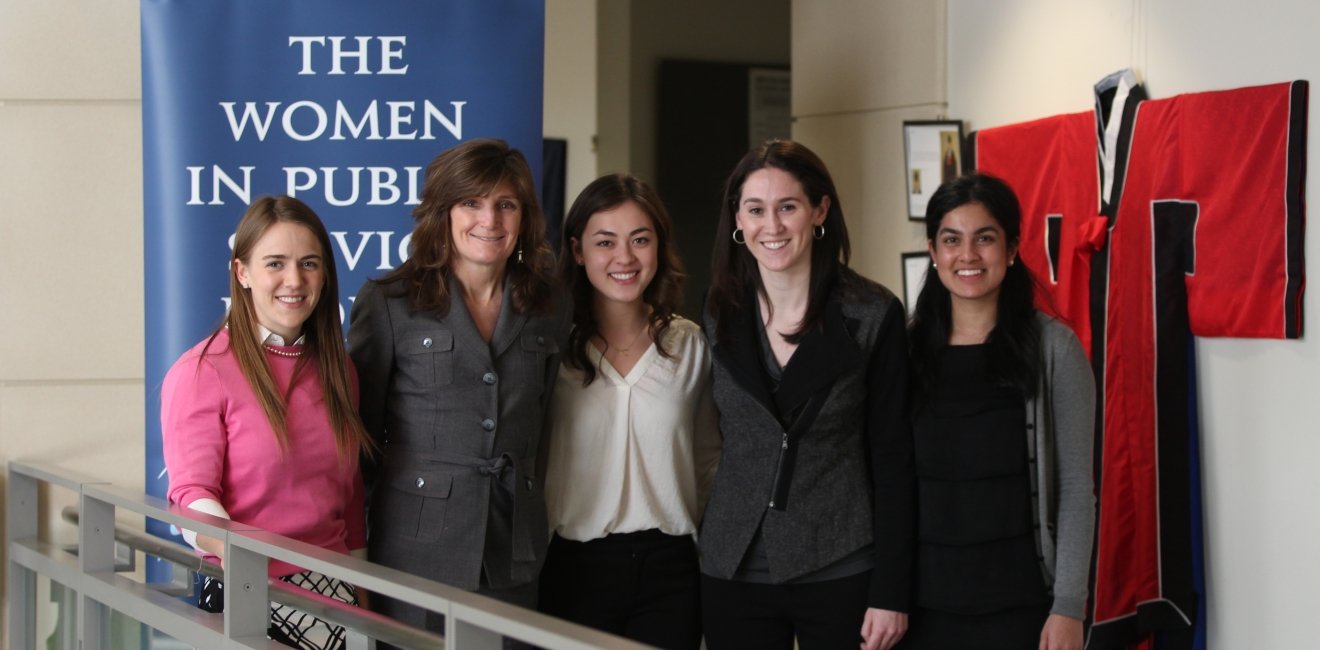On Thursday, April 14th the Women in Public Service Project (WPSP) hosted its inaugural Student Scholar Day, an annual competition for students from WPSP partner colleges and universities who have conducted research in the field of women’s leadership or political participation. This year’s attendees included three students from Wellesley and Mount Holyoke Colleges who presented their findings on topics ranging from women’s military history to the African Union’s involvement in Burundi.
This annual event aligns with the WPSP’s goal of equipping and promoting the next generation of female leaders. The students are invited to the Wilson Center to present their research, engage with scholars, and network with a vast array of DC-based governmental and non-governmental organizations.
The 2016 Student Scholars included: Anna Page from Wellesley College, Erica Carvell from Mt. Holyoke College, and Lisa de Sousa Dias, also from Mt. Holyoke College. Anna Page’s presentation entitled, “Hatchets, Muskets, and Grit: American Origins of Women’s Service in Direct Ground Combat Positions,” analyzed three relatively unknown women in American military history: Hannah Duston, Deborah Sampson, and Sarah R. Wakeman. In her findings, Anna explained how each woman challenged the traditional notion of female “virtue” and the image of the archetypal ‘American Girl.’
In Erica Carvell’s presentation, “A Precarious Balance: Exploring Sino-U.S. Interplay in Burma/Myanmar,” Erica explored Myanmar’s ethno-nationalist movements and their impact on national unity. Key questions included Myanmar’s relationship with China as Myanmar emerges from 60 years of military rule and opens its doors to Western investment and bilateral relations.
Lisa de Sousa Dias presented on “Understanding the African Union’s Non-Intervention in Burundi,” which questioned the motives and aspirations behind the African Union’s decision not to send peace-keeping troops to Burundi in January of 2016. Lisa also discussed her non-profit, Girls to Summit (GtS), which she co-founder with her sister. Girls to Summit strives to get more girls into politics by creating community-based networks and is active in the US and Tanzania.
Following their individual presentations, each student scholar met with Wilson Center Fellows to discuss their shared research interests and career trajectories. The students also participated in an hour-long “speed networking session” with representatives from the UN Foundation, the Center for Democracy in the Americas, the Women’s Learning Partnership and Georgetown University’s Institute for Women, Peace and Security. The students were able to ask questions on their career aspirations and receive feedback on potential career opportunities and goals.
The WPSP would like to thank its partners and the 2016 student scholars for a thoughtful and enlightening day of academia and exemplary leadership. Research submissions for the 2017 Student Scholar Day will open on September 19, 2016. The competition is open to all students of WPSP partner schools who have conducted research on women in public service or women’s leadership. Paper submissions must be at least 1,000 words, be properly citied and contain a bibliography. Please contact us at wpsp@wilsoncenter.org with any questions regarding this competition.






